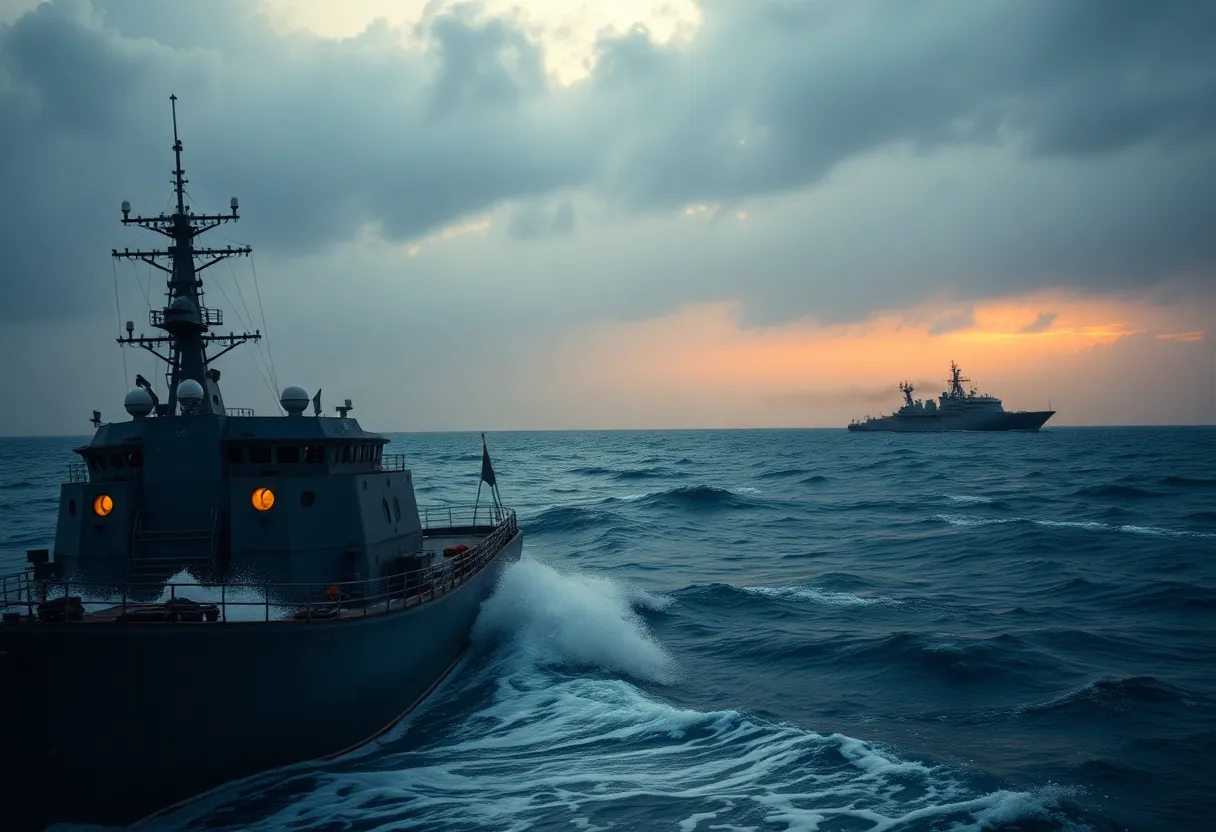News Summary
In response to escalating attacks by the Houthis on maritime shipping in the Red Sea, the U.S. has commenced military strikes targeting Houthi positions in Yemen. President Trump’s directive aims to restore safety in a vital shipping route. This marks a significant shift in U.S. military engagement in the region, as previous efforts were more restrained. The strikes have resulted in civilian casualties and heightened tensions, with the Houthis vowing to continue their operations. The situation presents pivotal geopolitical implications for the Middle East and global shipping security.
U.S. Takes Military Action Against Yemen’s Houthis Amid Shipping Concerns
In a significant move, President Donald Trump has ordered military strikes targeting **Houthi** positions in **Yemen** as a direct response to ongoing assaults on shipping in the critical **Red Sea** area. These actions are largely viewed as a bold reaction amid rising tensions fueled by the Houthis’ repeated threats to maritime safety.
What’s Been Happening?
The Houthis, backed by Iran, have ramped up their attacks on shipping vessels, claiming a motive of solidarity with the Palestinians amid the current crisis in **Gaza**. Since November 2023, they have launched over **100 attacks**, wreaking havoc on international shipping routes. These attacks have become increasingly deadly: they’ve sunk two vessels, seized another, and resultantly, tragically, four seafarers have lost their lives in these confrontations.
Military Action Commences
The U.S. military strikes mark the first substantial military engagement in Yemen since the **Israel-Hamas** ceasefire agreement took effect back in January. Trump’s directive targeted a building in a **Houthi** stronghold in **Sanaa**, leading to powerful explosions that were felt across the area. Unfortunately, the strikes have resulted in civilian casualties, with reports indicating at least nine civilians killed and another nine injured in the chaos that unfolded.
A Firm Stance
In response to the escalating situation, Trump issued a stern warning to the Houthis, indicating that they should expect severe consequences if the assaults do not cease. He also made it clear that Iran, the primary supporter of the Houthis, must stop its backing of the militant group. This assertive military action signifies a notable shift from the previous administration’s more measured approach towards the Houthis.
Continued Tensions
As the dust settles from the recent strikes, it’s essential to note that the Houthis have rejected any notion of backing down. In the lead-up to the military actions, they had signaled intentions to continue attacking Israeli vessels, emphasizing their stance until Israel lifts its blockade that hampers humanitarian aid to the region. The Houthi leadership remains unyielding, claiming that their operations aim to assert their capability to retaliate against perceived aggression from Israel.
Global Maritime Implications
Secretary of Defense Pete Hesgeth has underscored that these military operations are critical to ensuring “freedom of navigation” in the region. The strikes specifically targeted Houthi defenses, including **radar systems**, **air defenses**, and missile capabilities. As military experts suggest, this engagement may extend further, indicating that the U.S. is prepared for a prolonged period of action.
A Broader Geopolitical Landscape
The conflict in Yemen is not occurring in isolation. The situation showcases deeper geopolitical tensions involving various factions, with Iran and the United States at the helm, pulling strings behind the scenes. This escalating feud has serious ramifications not just for the Middle East but also for global shipping and economic stability.
Reactions and Outlook
The U.S. actions have garnered a robust backing from senior officials, including Secretary of State Marco Rubio. He echoed the commitment to protecting both American interests and the integrity of global shipping lanes. Meanwhile, the Israeli government, led by Prime Minister Benjamin Netanyahu, has also highlighted the potential consequences of Houthi actions as threats that cannot be ignored.
What’s Next?
As the situation develops, the world watches closely to see how the Houthis will respond and whether further escalations are on the horizon. With tensions running high, the stakes in this conflict are undeniably significant, both for regional players and global economic interests.
In these trying times, it’s essential to stay informed about the developments and understand the broader implications of these military actions on international stability and our interconnected world.
Deeper Dive: News & Info About This Topic
- Al Jazeera: Israeli Attacks Kill 5 in North Gaza
- Wikipedia: Houthis
- Times of Israel: Houthi Attack on Yemen’s Sanaa
- Google Search: Yemen conflict
- AP News: Yemen’s Houthi Rebels and Israel-Hamas War
- Encyclopedia Britannica: Yemen Civil War
- Haaretz: Trump Orders Military Action Against Yemen’s Houthis
- Google News: Israel Hamas conflict
- Newsweek: Houthis Take Steps to Protect Leader Amid Attacks
- Google Scholar: Yemen Houthi Rebels
Author: STAFF HERE CLINTON
The CLINTON STAFF WRITER represents the experienced team at HEREClinton.com, your go-to source for actionable local news and information in Clinton, Laurens County, and beyond. Specializing in "news you can use," we cover essential topics like product reviews for personal and business needs, local business directories, politics, real estate trends, neighborhood insights, and state news affecting the area—with deep expertise drawn from years of dedicated reporting and strong community input, including local press releases and business updates. We deliver top reporting on high-value events such as the Festival of Discovery, Clinton Community Day, and performances at the Whitten Center Amphitheater. Our coverage extends to key organizations like the Clinton Area Chamber of Commerce and the Laurens County Historical Society, plus leading businesses in manufacturing and education that power the local economy such as Milliken & Company and Presbyterian College. As part of the broader HERE network, including HEREAiken.com, HEREBeaufort.com, HEREChapin.com, HERECharleston.com, HEREClinton.com, HEREColumbia.com, HEREGeorgetown.com, HEREGreenwood.com, HEREGreenville.com, HEREHiltonHead.com, HEREIrmo.com, HEREMyrtleBeach.com, HERENewberry.com, HERERockHill.com, and HERESpartanburg.com, we provide comprehensive, credible insights into South Carolina's dynamic landscape.






